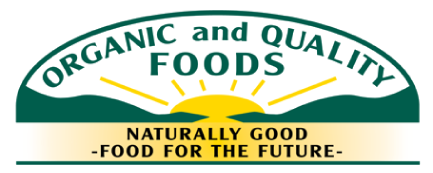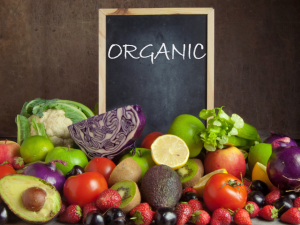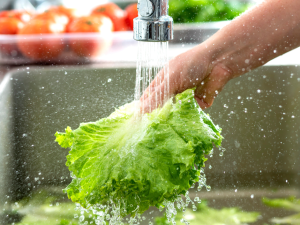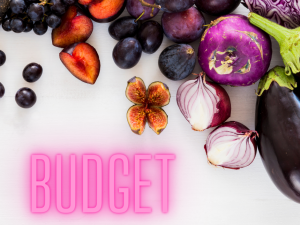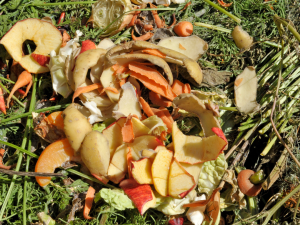Have you ever wondered what it means when a food label says “organic”? Shopping for healthy food can be confusing, and understanding the meaning of labels like “organic” can be tricky. In this blog post, we’ll be decoding the label to explain exactly what “organic” means and how it affects the food we eat. Join us as we explore the world of organic food and make sure you get the most nutritional bang for your buck.
The History of Organic Farming
Organic farming has a rich history that stretches back thousands of years. It is not a recent trend, but rather a return to traditional and sustainable agricultural practices that were used by our ancestors. The roots of organic farming can be traced back to ancient civilizations like the Egyptians and the Greeks, who practised natural methods of farming without the use of synthetic chemicals or genetically modified organisms.
In the early 20th century, a group of farmers and scientists started to question the negative effects of industrialized farming practices on the environment and human health. This led to the birth of the organic movement, with pioneers like Sir Albert Howard and Lady Eve Balfour advocating for a holistic approach to farming that respected the natural balance of ecosystems.
The organic movement gained momentum in the 1960s and 1970s, as concerns about pesticide use and the environmental impact of conventional agriculture grew. Consumers became more conscious about the food they were eating and the impact it had on their health. This led to the rise of organic food co-ops and the establishment of the first organic home delivery services.
In the past few decades, organic farming has become more mainstream, with governments and international organizations recognizing the importance of sustainable agriculture. Today, organic farming practices are regulated and certified by various organizations, ensuring that consumers can trust the organic label.
The history of organic farming is a testament to our desire to live in harmony with nature and prioritize our health and the environment. By choosing organic, we are not only nourishing our bodies with wholesome, chemical-free food but also supporting a movement that promotes sustainability and the preservation of our planet.
The Definition of Organic
When it comes to food labels, the term “organic” is one that gets thrown around a lot. But what does it really mean? Simply put, organic food refers to produce or products that have been grown or produced without the use of synthetic pesticides, fertilizers, or genetically modified organisms (GMOs). This means that the food is grown in a way that is environmentally sustainable and promotes the health of the soil, water, and air.
But it goes beyond just what is not used in organic farming. Organic farming also focuses on promoting biodiversity and supporting animal welfare. Farmers who adhere to organic practices prioritize crop rotation, composting, and natural pest control methods to maintain the health and balance of their ecosystems.
To ensure that a product is truly organic, it must be certified by a recognized organic certification body. These organizations have strict standards and regulations in place that farms and producers must adhere to in order to be labelled as organic. This certification process involves inspections, testing, and documentation to ensure that all organic standards are being met.
Choosing organic food not only benefits our health by reducing our exposure to harmful chemicals, but it also supports sustainable agriculture and helps to protect our planet. By supporting organic farming, we are contributing to the preservation of biodiversity, the conservation of natural resources, and the reduction of greenhouse gas emissions.
So the next time you see the word “organic” on a food label, you can rest assured that it represents a commitment to healthy and sustainable farming practices. Choosing organic means choosing food that is good for you and good for the planet.
Understanding Organic Certification
Now that we’ve explored the rich history of organic farming and the definition of organic food, let’s dive deeper into the process of organic certification. When it comes to buying organic, it’s important to know that not all products claiming to be organic are created equal. This is where organic certification comes into play.
Organic certification is a rigorous process that ensures the organic integrity of a product. Farms and producers must meet strict standards and regulations set by recognized organic certification bodies in order to be certified organic. This certification process involves inspections, testing, and documentation to verify that all organic standards are being met.
During the inspection process, certified organic farms are evaluated to ensure that they are using organic practices such as natural pest control, crop rotation, and composting. The farms must also demonstrate that they are not using synthetic pesticides, fertilizers, or GMOs. This rigorous evaluation process helps to maintain the credibility of the organic label and ensures that consumers can trust the products they are buying.
It’s important to note that not all products labelled as “organic” have undergone this certification process. However, choosing products that have been certified organic provides an added level of assurance that the product meets strict organic standards. By understanding the process of organic certification, consumers can make informed choices and trust that the organic products they are purchasing have been produced in a way that supports sustainable agriculture and protects the environment.
Benefits of Buying Organic
Now that we have a better understanding of the history and definition of organic food, let’s dive into the many benefits of buying organic. Choosing organic products not only supports your own health, but also has a positive impact on the environment and our communities.
One of the biggest benefits of buying organic is the reduced exposure to harmful chemicals. Organic farming practices prohibit the use of synthetic pesticides and fertilizers, which have been linked to a range of health issues including cancer, hormonal imbalances, and developmental problems. By choosing organic, you are minimizing your exposure to these potentially harmful substances and prioritizing your well-being.
Additionally, organic farming promotes sustainable agriculture and the conservation of natural resources. Organic farmers prioritize soil health, using methods like composting and crop rotation to maintain and improve the fertility of the land. They also avoid using genetically modified organisms (GMOs), which helps to preserve biodiversity and protect our ecosystems.
Another advantage of buying organic is the support it provides to local communities. Many organic farmers are small-scale, family-owned operations that rely on local support to thrive. By purchasing organic products, you are not only contributing to the success of these farmers, but also investing in the local economy and helping to create sustainable food systems.
Furthermore, the availability of organic products has been made easier with the emergence of organic home delivery services. These services allow you to conveniently access a wide range of organic produce and products from the comfort of your own home. With an organic home delivery service, you can ensure that your family is getting the highest quality organic food without the hassle of visiting multiple stores.
In summary, the benefits of buying organic are clear. From improved health outcomes to environmental conservation and supporting local communities, choosing organic is a win-win for both you and the planet. So the next time you go grocery shopping, consider opting for organic and reap the many rewards it has to offer.
Organic vs. Non-Organic Produce: What’s the Difference?
When it comes to grocery shopping, one of the biggest choices we face is deciding between organic and non-organic produce. But what exactly is the difference? And is one really better than the other? In this section, we’ll dive into the nuances of organic vs. non-organic produce and help you make an informed decision.
The main distinction between organic and non-organic produce lies in the way it is grown. Organic produce is grown without the use of synthetic pesticides, fertilizers, or genetically modified organisms (GMOs). On the other hand, non-organic produce is typically grown using these conventional farming methods. This means that organic produce is free from potentially harmful chemicals, while non-organic produce may have residues of pesticides and other synthetic substances.
Choosing organic produce has several advantages. Firstly, it reduces your exposure to harmful chemicals, which can have detrimental effects on your health. By opting for organic, you are prioritizing the well-being of your body and minimizing your intake of potentially toxic substances.
Additionally, organic farming practices promote sustainable agriculture and the conservation of natural resources. Organic farmers focus on maintaining soil health, preserving biodiversity, and protecting ecosystems. By supporting organic farming, you are contributing to the preservation of our planet and promoting environmental sustainability.
Luckily, finding organic produce has never been easier. With the emergence of organic home delivery services such as Organic & Quality Foods, you can conveniently access a wide range of organic fruits, vegetables, and other products without leaving your home. These services source their products from certified organic farms, ensuring that you are getting the highest quality organic produce delivered right to your doorstep.
How to Identify Organic Products
If you’re committed to buying organic, you’ll want to know how to identify organic products when you’re at the grocery store or browsing online. Luckily, there are a few key things you can look for to ensure you’re getting the real deal.
First, check for the NASAA or Biodynamic Organic certification label. This label indicates that the product has been certified by one of the Australian Certifying Bodies for organic products as meeting the organic standards. If you’re shopping outside of Australia, look for similar organic certification labels specific to the country you are in. Next, read the product label carefully. Look for phrases like “100% organic” or “made with organic ingredients.” These indicate that the product contains a high percentage of organic ingredients. However, keep in mind that if a product simply says “organic,” it may only contain a minimum percentage of organic ingredients and may still contain non-organic ingredients.
Another clue to look for is the price. Organic products often come with a slightly higher price tag compared to non-organic alternatives. This is because organic farming practices can be more labour-intensive and require higher-quality inputs.
Lastly, consider shopping from an organic home delivery service. These services specialize in delivering organic products directly to your doorstep, making it easy to access a wide range of organic produce and products. By choosing an organic home delivery service such as Organic & Quality Foods, you can be confident that the products you’re receiving are certified organic and of the highest quality. By keeping these tips in mind, you’ll be well-equipped to identify and choose organic products that align with your values and support your health and the environment. Happy organic shopping!
The Future of Organic Farming
As we look to the future, the importance of organic farming and sustainable agriculture becomes even more evident. With growing concerns about climate change, biodiversity loss, and the impact of conventional farming practices on our health, the need for organic farming practices is greater than ever.
One of the key aspects of the future of organic farming is the continued innovation and development of sustainable techniques. Organic farmers are constantly exploring new methods and technologies that can enhance their ability to grow food in a way that is environmentally friendly and economically viable. This includes advancements in soil health management, water conservation, and natural pest control.
Another important aspect of the future of organic farming is the expansion of organic food availability. As consumer demand for organic products continues to rise, we can expect to see an increase in the number of organic farms and the variety of organic products on the market. This will make organic food more accessible to a wider range of consumers and help to create a more sustainable and equitable food system.
Furthermore, the future of organic farming also involves greater collaboration and partnership between organic farmers, researchers, and policymakers. By working together, these stakeholders can continue to develop and implement strategies that support organic farming and promote the health and well-being of both people and the planet.
In conclusion, the future of organic farming holds great promise. With ongoing innovation, increased availability, and strong collaboration, organic farming has the potential to play a significant role in addressing the challenges we face in agriculture and creating a more sustainable and resilient food system for generations to come. By supporting organic farming and choosing organic products, we can all contribute to a healthier and more sustainable future.
